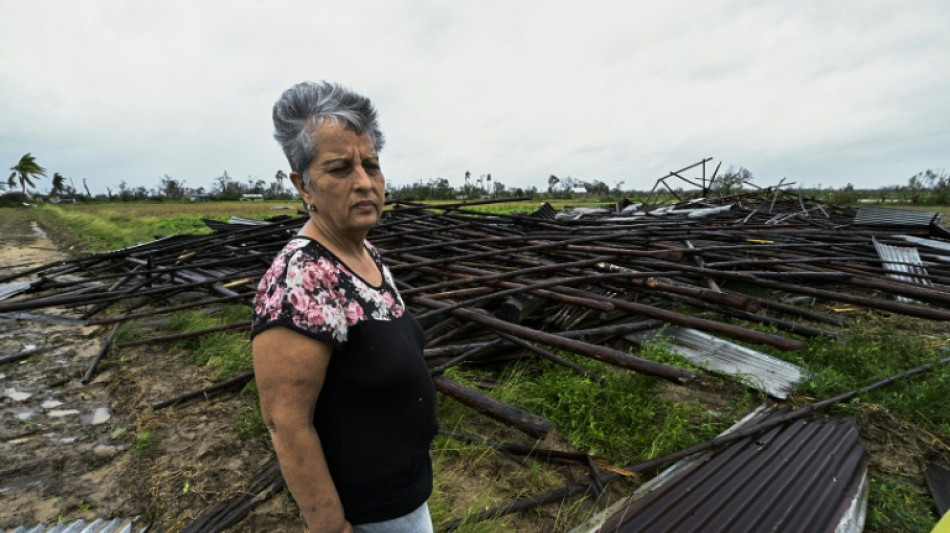
RBGPF
59.6900

Western Cuba's tobacco growing heartland has been left devastated by Hurricane Ian with piles of wood and tiles where once stood farms.
A triangle of three municipalities in the Vuelta Abajo region of Pilar del Rio province, the Cuban region worst affected by the tropical storm, is where the best tobacco leaves grow and is a pillar of the island nation's ravaged economy.
"We've never had a catastrophe of this scale," Maritza Carpio, who runs a tobacco estate in San Luis, told AFP.
Winds that reached speeds of more than 200 kilometers (125 miles) per hour left "an extremely difficult situation for all farmers."
With Cuba's economy already in crisis and its vital tourism industry grinding to a halt during the coronavirus pandemic, "we don't know how we can face this," said Carpio.
The hurricane could not have struck at a worse time with the tobacco planting season due to begin in October.
The winds and rain smashed makeshift wooden constructions where tobacco leaves are left to dry and benefit from the sun, air and humidity of Cuba.
Ian also eroded the crop fields that were being prepared for planting.
"It's a blow that slows down the development of the planting season" given that the fields had already been ploughed, said tobacco farmer Sergio Luis Martinez, 59, whose tobacco house in Pinar del Rio was destroyed.
Pilar del Rio produces 65 percent of Cuban tobacco, while Vuelta Abajo is the only region where the three different types of leaves used in the country's world famous cigars grow.
In San Luis alone, 226 tons of tobacco harvested in August was damaged, local television said.
In 2021, Cuba exported $568 million worth of cigars, a 15 percent increase on the previous year, according to Habanos S.A, the manufacturing company that controls promotion, distribution and export of cigars.
The state-owned Tabacuba company, which buys 95 percent of private producers' harvests, was not spared by the hurricane, with many of its warehouses, sorting centers and offices destroyed.
- 'Everything is ugly' -
The Category 3 hurricane battered Pinar del Rio for six hours on Tuesday, leaving three people dead. Authorities had evacuated 50,000 people as a precaution.
The national electricity grid was also badly damaged with a total nationwide power cut lasting 18 hours, leaving 11.2 million people in the dark.
Two days later, power had still not been restored in the west.
In a matter of hours, decades of work was ruined.
On Carpio's estate, trees were uprooted and a young banana plantation devastated.
"Before you breathed country air, you could say 'how beautiful', and now everything is ugly," said Carpio, who is putting up her neighbor Caridad Alvarez, a 59-year-old farmhand whose house was destroyed.
The impact is not just economic, but also sentimental.
"It was an old farm, build with hard wood by my grandfather, repaired by my father, who died in April at 93," said Carpio.
- 'Great damage' -
President Miguel Diaz-Canel visited Pinar del Rio on Tuesday and Wednesday.
"There is great damage, even though we haven't yet been able to evaluate it," he wrote on Twitter.
Carpio's estate is classified as a "Vega fina", a certification needed to grow the tobacco used in Cuban cigars.
This year she harvested 4.8 tons of the tobacco leaf used to carefully make the cigars.
Carpio knows that she is going to have to rebuild her farm quickly to avoid missing out on the next harvest, but for that she says she will need government help.
G.Gopinath--DT